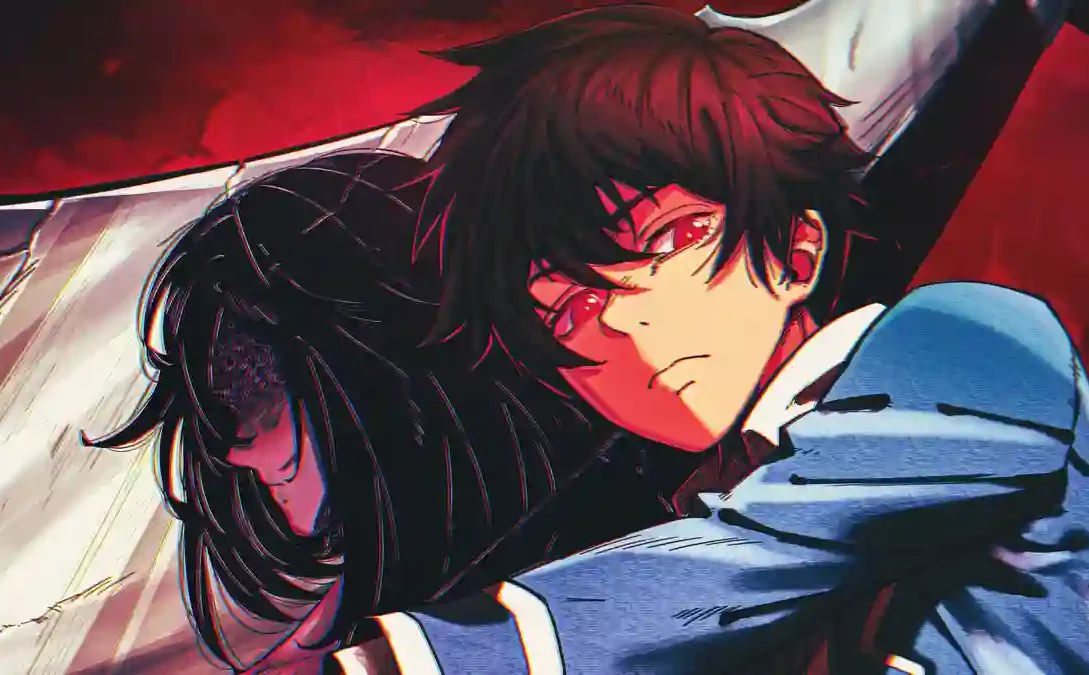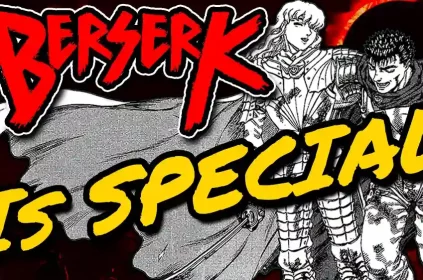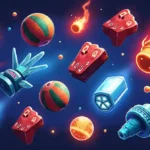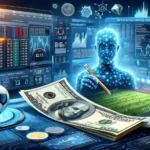Kentaro Miura’s “Berserk” is a manga series that has captivated readers with its dark and intricate narrative set in a brutal and unforgiving fantasy world. Within this grim and violent landscape, the characters grapple with moral dilemmas and ethical choices that challenge conventional notions of right and wrong. In this article, we will explore the complex and nuanced exploration of morality in “Berserk,” examining how the series challenges traditional morality and presents a morally ambiguous world.
The Dark Fantasy Setting
“Berserk” unfolds in a world plagued by demons, supernatural creatures, and political intrigue. The setting is characterized by pervasive violence, cruelty, and moral ambiguity, where survival often necessitates morally compromising decisions. In such a world, traditional notions of good and evil are frequently blurred, and characters are forced to make difficult choices to navigate their harsh reality.
Guts: A Reluctant Anti-Hero
The series’ protagonist, Guts, embodies the moral complexities of the “Berserk” world. As a lone mercenary, Guts is initially portrayed as a ruthless and morally ambiguous figure who kills without hesitation. His actions are driven by a desire for vengeance against Griffith, the former leader of the Band of the Hawk, who betrayed him in a horrific manner.
However, Guts’ character arc is a testament to the moral evolution that occurs within the series. As he encounters other characters and forms bonds of friendship and camaraderie, Guts begins to grapple with questions of morality, ethics, and the consequences of his actions. His journey is one of self-discovery, as he navigates the fine line between heroism and brutality.
The Eclipse: A Pivotal Moral Turning Point
The Eclipse, a pivotal and nightmarish event in “Berserk,” serves as a moral crucible for the characters. During this horrific ceremony, Guts and his comrades are betrayed and subjected to unspeakable horrors by Griffith and the God Hand. The event forces characters to confront the moral dilemmas of sacrifice, betrayal, and the human cost of ambition.
Guts’ survival of the Eclipse and his determination to avenge his fallen comrades drive much of the series’ narrative. His pursuit of Griffith is not solely an act of vengeance but a moral reckoning, as he seeks to hold Griffith accountable for the atrocities committed during the Eclipse.
Morally Ambiguous Characters
One of the strengths of “Berserk” lies in its portrayal of morally ambiguous characters who defy easy categorization. Griffith, for example, is a complex figure who elicits both admiration and revulsion from readers. His ambition and charisma are undeniable, yet his actions, particularly during the Eclipse, reveal a darker and more sinister side.
The Band of the Hawk, Guts’ former comrades, also grapple with moral complexities. Many members are willing to follow Griffith’s vision, even as it leads to increasingly morally compromised choices. The moral ambiguity surrounding these characters adds depth and realism to the story, reflecting the shades of gray in a world defined by darkness.
The God Hand: Agents of Moral Corruption
The God Hand, the primary antagonists of “Berserk,” embody the corruption of morality in the series. These transcendent beings manipulate human desires and ambitions, often leading individuals to make morally reprehensible choices in exchange for power or transcendence.
The Idea of Evil, an enigmatic entity at the heart of the series, represents the ultimate source of moral corruption. It is a malevolent force that preys on human suffering and despair, further complicating the moral landscape of “Berserk.” The Idea of Evil’s existence challenges conventional notions of morality by suggesting that suffering is inherent to the human condition.
Questions of Free Will and Determinism
“Berserk” delves into profound philosophical questions concerning free will and determinism. The series raises the possibility that characters’ actions are guided by a preordained fate or manipulated by supernatural forces beyond their control. This existential dilemma challenges characters’ agency and their responsibility for their choices.
Guts, in particular, grapples with the question of whether he is merely a pawn in a larger cosmic game or if he can shape his own destiny. This philosophical underpinning adds another layer of moral complexity to the series, as characters navigate a world where the boundaries between fate and free will are blurred.
The Influence of Trauma
Trauma is a recurring theme in “Berserk,” and it has a profound impact on characters’ moral choices and actions. Guts, in particular, bears the emotional scars of his traumatic upbringing and the horrors he has witnessed and endured. His trauma shapes his worldview and influences his moral compass, leading him to a path of vengeance and self-preservation.
Similarly, other characters in the series grapple with the trauma of their experiences, which in turn informs their actions and decisions. “Berserk” explores how trauma can distort one’s sense of morality and ethics, making characters’ choices all the more complex and morally ambiguous.
Conclusion
“Berserk” is a manga series that challenges traditional notions of morality within the context of a dark and unforgiving fantasy world. Its characters grapple with morally ambiguous choices, complex ethical dilemmas, and the consequences of their actions. The series defies easy categorization of characters as heroes or villains, instead presenting them as multifaceted individuals shaped by their experiences and the moral complexities of their world.
As readers journey through the morally gray landscape of “Berserk,” they are confronted with questions of free will, determinism, and the impact of trauma on morality. The series challenges us to consider the nature of good and evil in a world defined by darkness, where even the most virtuous characters must make morally compromised decisions to survive.
In the end, “Berserk” invites readers to explore the boundaries of morality and ethics, encouraging them to contemplate the moral complexities that arise in a world devoid of easy answers. Kentaro Miura’s creation is a testament to the power of storytelling to challenge and provoke thought, leaving a lasting impact on those who venture into the morally ambiguous realm of “Berserk.”









